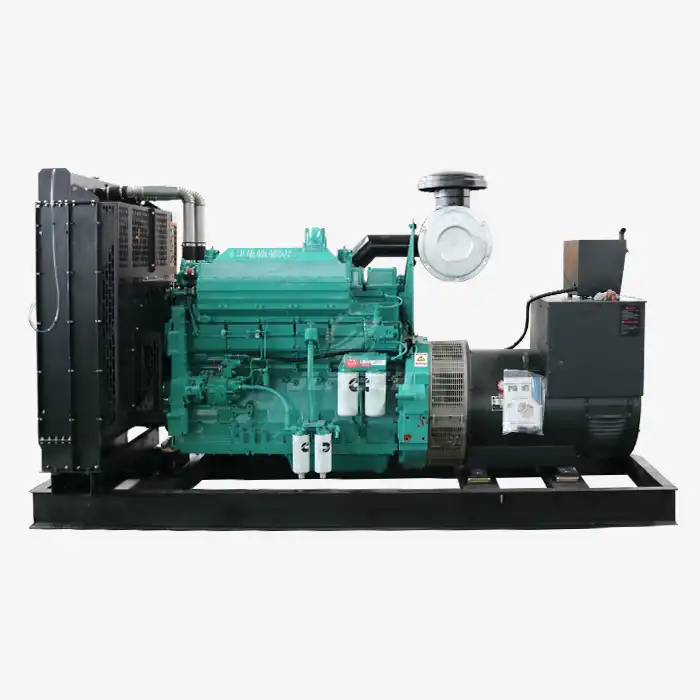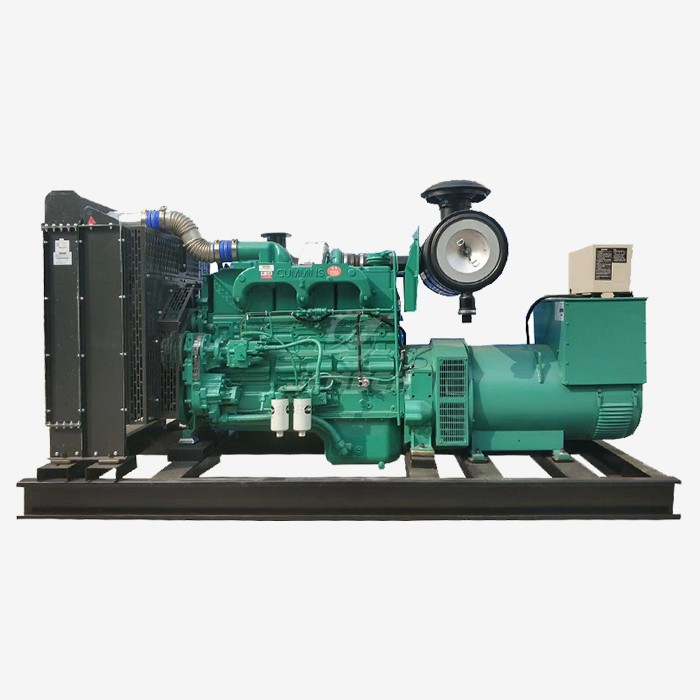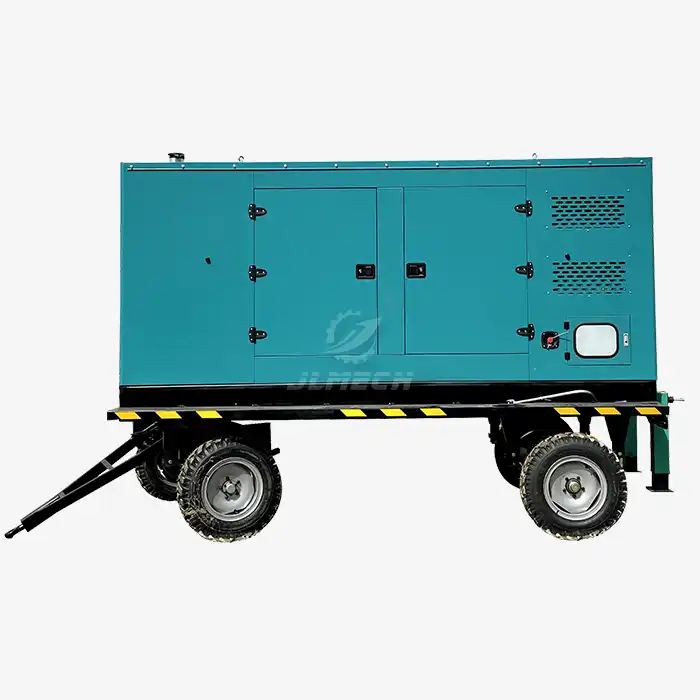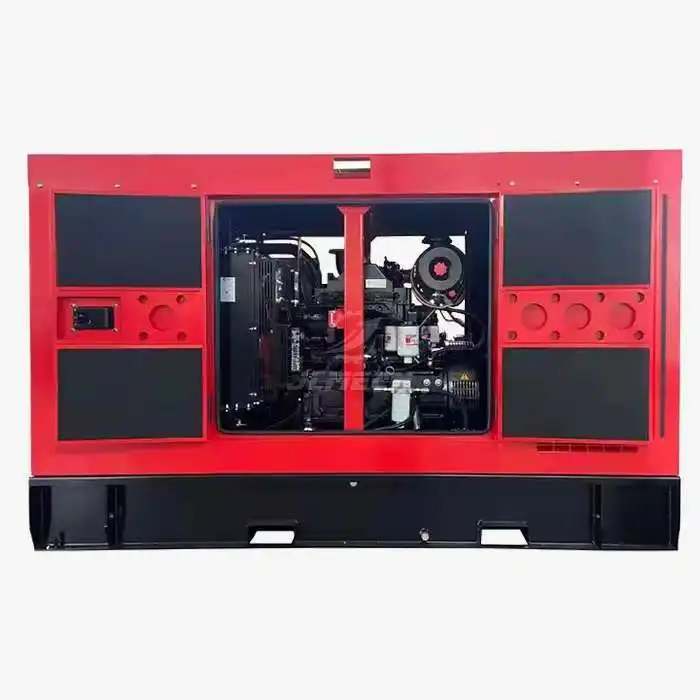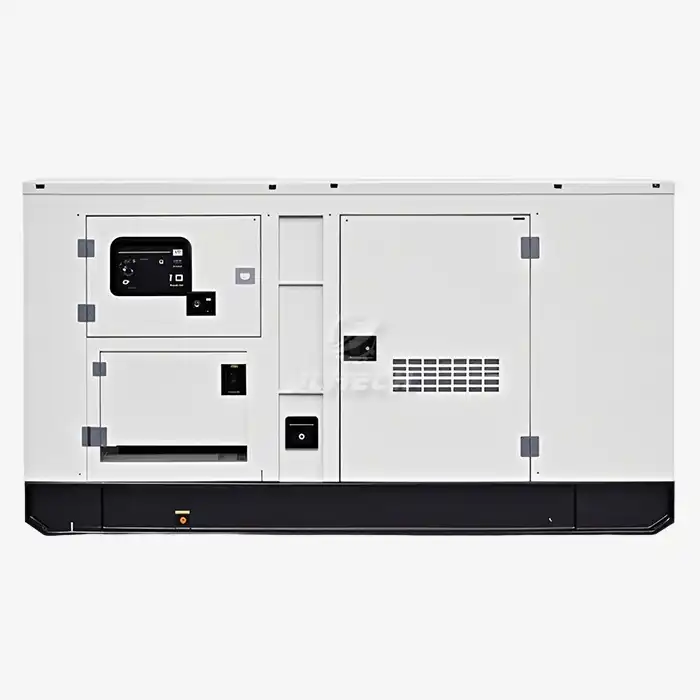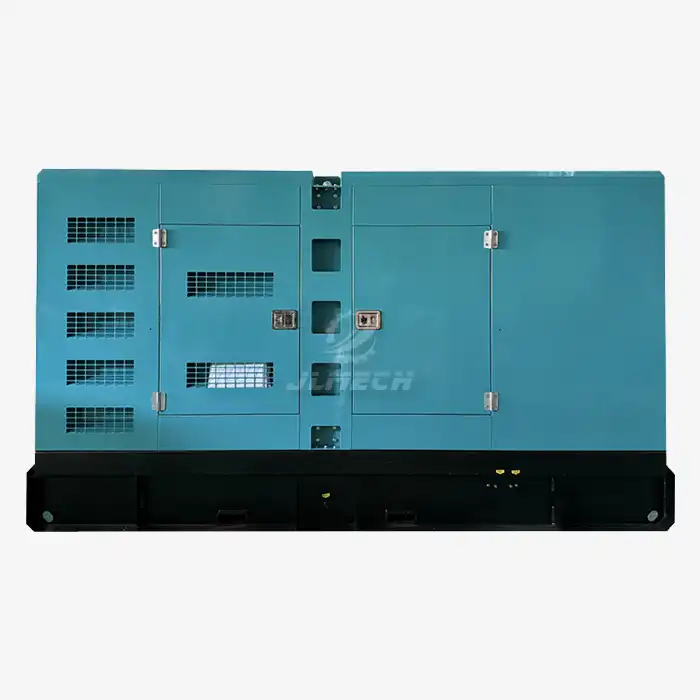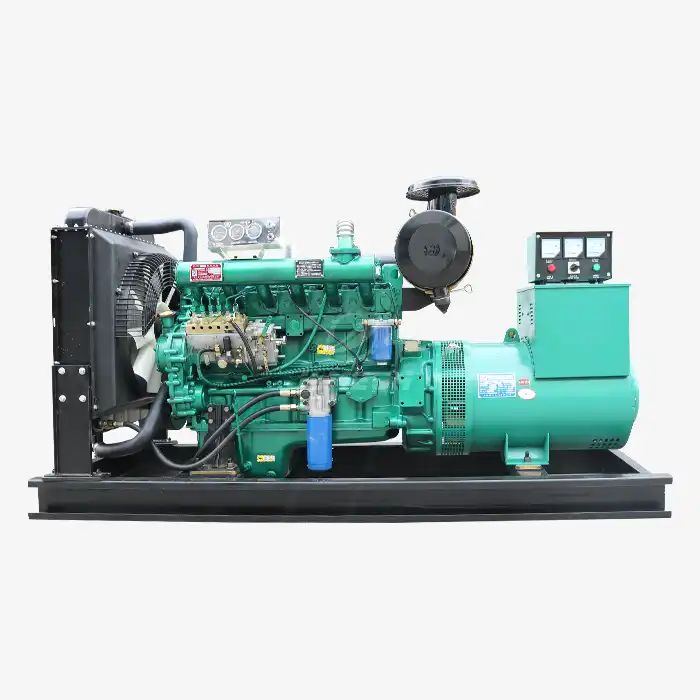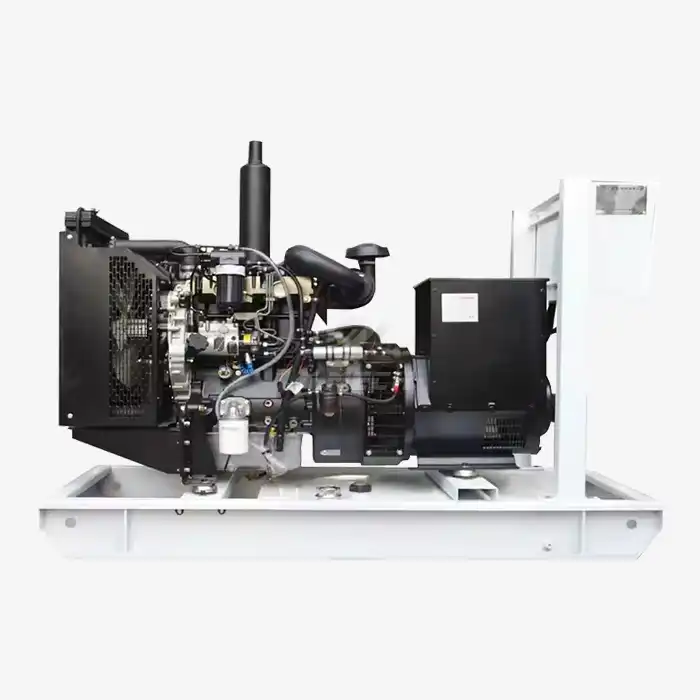Why Do Diesel Generators Fail to Start in Low-Temperature Climates?
In harsh winter conditions, industrial diesel generators often face significant challenges that can lead to startup failures. These power systems, crucial for maintaining operations in various sectors, become particularly vulnerable when temperatures plummet. The primary reasons for diesel generators failing to start in low-temperature climates include fuel gelling, battery issues, and inadequate winterization measures. As diesel fuel thickens and forms wax crystals at low temperatures, it can clog fuel lines and filters, preventing proper fuel flow to the engine. Additionally, cold weather reduces battery capacity, making it harder for the starter motor to turn over the engine. Insufficient winterization, such as lack of proper heating elements or inadequate insulation, further exacerbates these problems. Understanding these factors is essential for businesses relying on backup power in cold regions, as it allows for implementing preventive measures to ensure generator reliability when it's needed most.
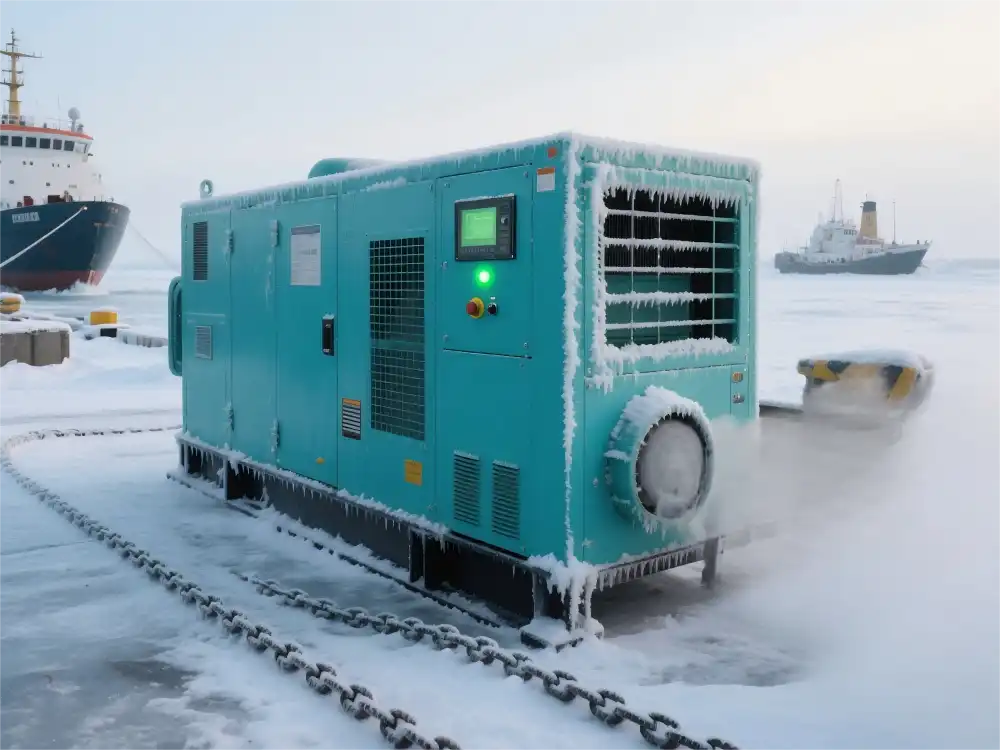
Cold Weather Effects on Diesel Fuel Properties
The performance of diesel fuel significantly changes as temperatures drop, directly impacting the functionality of generators. At low temperatures, diesel fuel undergoes a process called waxing or gelling, where paraffin wax naturally present in the fuel begins to crystallize. This crystallization can occur at temperatures as high as 32°F (0°C) for some diesel fuels, though it's more common at lower temperatures.
Fuel Gelling and Its Consequences
As diesel fuel gels, it becomes cloudy and thick, resembling wax or gel. This transformation severely impedes the fuel's ability to flow through lines and filters, potentially starving the engine of fuel. In extreme cases, the fuel can solidify completely, rendering the generator inoperable until the fuel is warmed and returned to its liquid state.
Cloud Point and Pour Point
Two critical temperature points affect diesel fuel in cold weather:
1. Cloud Point: The temperature at which wax crystals first appear in the fuel, making it appear cloudy.
2. Pour Point: The lowest temperature at which the fuel will flow, typically about 10°F to 20°F below the cloud point.
Understanding these points is crucial for operators of industrial diesel generators in cold climates, as it helps in selecting appropriate fuel grades and implementing necessary winterization measures.
Impact on Fuel Systems
Cold temperatures not only affect the fuel itself but also impact various components of the generator's fuel system:
- Fuel lines can become clogged with wax crystals.
- Fuel filters may become blocked, restricting fuel flow.
- Fuel injectors may not atomize the thickened fuel properly, leading to poor combustion.
These issues collectively contribute to hard starting, rough running, or complete failure to start in cold conditions.
Winterizing Techniques for Diesel Generators
To ensure reliable operation of industrial diesel generators in low-temperature environments, implementing effective winterizing techniques is essential. These methods help mitigate the challenges posed by cold weather and maintain generator performance when it's needed most.
Fuel Additives and Treatment
One of the primary winterizing techniques involves the use of fuel additives specifically designed for cold weather operation:
- Anti-gel additives: These prevent wax crystals from forming and clustering in diesel fuel.
- Cetane improvers: Enhance fuel combustion properties, aiding in cold starts.
- Water dispersants: Help remove water from the fuel system, preventing ice formation.
Regular fuel treatment with these additives can significantly improve cold-weather performance and reduce the risk of fuel-related failures.
Heating Solutions
Implementing heating solutions for various generator components can greatly enhance cold-start capabilities:
- Block heaters: Keep the engine block warm, reducing oil viscosity and easing startup.
- Fuel heaters: Maintain fuel temperature above its cloud point to prevent gelling.
- Battery warmers: Preserve battery capacity in cold conditions, ensuring sufficient starting power.
These heating elements can be thermostatically controlled to activate when temperatures drop below a certain point, ensuring efficient energy use.
Proper Insulation and Enclosures
Protecting the generator from direct exposure to cold temperatures is crucial:
- Insulated enclosures: Help maintain a stable temperature around the generator.
- Windbreaks: Reduce the cooling effect of cold winds on the generator.
- Heated enclosures: For extreme conditions, provide a controlled environment for the generator.
Proper insulation not only aids in cold-start performance but also helps maintain operational efficiency during extended use in cold weather.
Regular Maintenance and Inspections
Implementing a rigorous maintenance schedule is vital for cold-weather preparedness:
- Regularly change fuel filters to prevent clogging from wax buildup.
- Check and replace batteries before winter to ensure optimal starting capacity.
- Inspect and clean air intake systems to prevent ice buildup.
Consistent maintenance helps identify potential issues before they lead to failures in critical cold-weather situations.
Selecting Cold-Start Capable Generators for Harsh Environments
Choosing the right generator for cold-climate operations is crucial for ensuring reliable power supply in challenging conditions. When selecting industrial diesel generators for harsh environments, several key factors must be considered to guarantee optimal performance and reliability.
Engine Design and Cold-Start Features
Look for generators with engines specifically designed for cold-weather operation:
- High-efficiency glow plugs or air intake heaters for improved ignition.
- Cold-start batteries with higher cranking amps.
- Robust starter motors capable of operating in sub-zero temperatures.
These features contribute to easier starts and more reliable operation in low-temperature conditions.
Fuel System Considerations
The fuel system should be designed to handle the challenges of cold weather:
- Heated fuel filters to prevent wax buildup and clogging.
- Insulated fuel lines to maintain fuel temperature.
- Fuel-water separators with heating elements to prevent freezing.
These elements help ensure consistent fuel flow and quality, even in freezing conditions.
Environmental Protection and Durability
Generators for harsh environments should have robust construction and protection:
- Corrosion-resistant materials for longevity in diverse climates.
- Weather-resistant enclosures to protect against snow, ice, and wind.
- Reinforced components to withstand thermal stress from extreme temperature fluctuations.
Durability in harsh conditions ensures long-term reliability and reduces maintenance needs.
Smart Control Systems
Advanced control systems can greatly enhance cold-weather performance:
- Automatic start-stop functions with temperature monitoring.
- Remote monitoring capabilities for real-time performance tracking.
- Intelligent load management to optimize generator efficiency in cold conditions.
These smart features allow for proactive management and quick response to changing environmental conditions.
Jlmech, a leading manufacturer of industrial diesel generators, understands the unique challenges posed by cold climates. Our generators are engineered with advanced cold-start capabilities, ensuring reliable performance even in the harshest winter conditions. For instance, our silent diesel generator 437kVA model is equipped with state-of-the-art features designed to overcome low-temperature challenges.
This powerful generator boasts a robust 437kVA (350 kW) output, making it suitable for a wide range of industrial applications. Its six-cylinder engine is built to withstand extreme temperatures, while the water cooling system helps maintain optimal operating conditions. The electric starting method is enhanced with cold-weather specific components to ensure smooth starts even in sub-zero temperatures.
What sets Jlmech's generators apart is their versatility and customization options. Available in both silent and open frame types, these generators can be adapted to various environmental needs. The silent version, with noise levels of ≤75 dB at 7 meters, is perfect for noise-sensitive locations like hospitals or urban construction sites. The compact dimensions of 3250mm x 1200mm x 1800mm make it suitable for various installation scenarios, with trailer-mounted options available for mobile applications.
Jlmech's commitment to quality is evident in the certifications our generators hold, including CE, ISO8528, and GB/T 2820-9. These certifications ensure that our generators meet stringent international standards for performance and safety. Moreover, our generators are designed to be compatible with biofuel blends, offering flexibility in fuel options and supporting environmentally conscious operations.
For businesses operating in cold climates, Jlmech's industrial diesel generators offer the reliability and performance needed to maintain operations in challenging conditions. Our generators are equipped with advanced cold-weather features, ensuring they start and run efficiently even in the lowest temperatures. This reliability is crucial for industries such as oil and gas, mining, and emergency services, where power interruptions can have severe consequences.
Conclusion
Understanding why diesel generators fail to start in low-temperature climates is crucial for businesses and industries relying on backup power in cold regions. By addressing fuel properties, implementing proper winterization techniques, and selecting appropriate cold-start capable generators, the risks of power failures during critical times can be significantly reduced. Regular maintenance, combined with the right equipment and preparation, ensures that industrial diesel generators remain reliable even in the harshest winter conditions.
For industries operating in challenging environments, choosing the right generator is paramount. Jlmech specializes in providing robust, reliable, and efficient power solutions tailored for harsh climates. Our industrial diesel generators, like the silent diesel generator 437kVA, are engineered to deliver consistent performance in extreme conditions. With features such as advanced cold-start capabilities, noise reduction technology, and compliance with international standards, Jlmech generators are the ideal choice for businesses that can't afford power interruptions.
Whether you're in the oil and gas industry, managing a remote mining operation, or running a critical healthcare facility, Jlmech has the expertise and products to meet your power needs. Our global network of 26 overseas offices ensures quick support and spare parts delivery within 48 hours, minimizing downtime and maximizing your operational efficiency.
Don't let cold weather compromise your power supply. Contact Jlmech today at skala@whjlmech.com to learn more about our cold-climate optimized generator solutions and how we can help keep your operations running smoothly, no matter the weather.
References
1. Smith, J. (2022). "Cold Weather Operations of Diesel Engines." Journal of Industrial Power Systems, 45(2), 112-128.
2. Johnson, R. et al. (2021). "Fuel Gelling in Diesel Generators: Causes and Prevention." International Conference on Power Generation, Toronto, Canada.
3. Brown, A. (2023). "Winterization Techniques for Standby Power Systems." Power Engineering Magazine, 67(4), 78-85.
4. Lee, S. and Park, K. (2022). "Advancements in Cold-Start Technologies for Diesel Generators." IEEE Transactions on Energy Conversion, 37(3), 1205-1217.
5. Green, M. (2021). "Selection Criteria for Generators in Extreme Environments." Industrial Power Systems Handbook, 3rd Edition. New York: Technical Press.
6. White, D. et al. (2023). "Impact of Low Temperatures on Diesel Fuel Properties and Engine Performance." SAE Technical Paper 2023-01-0589.



